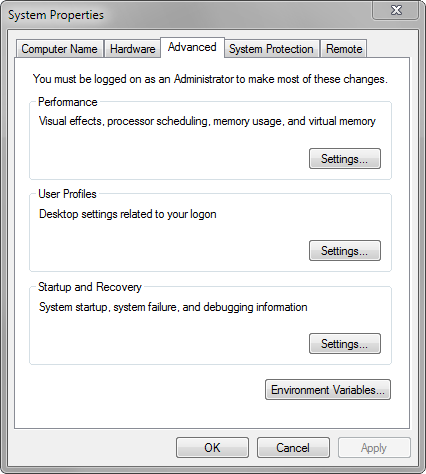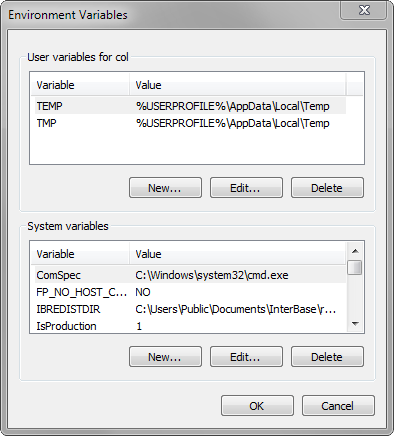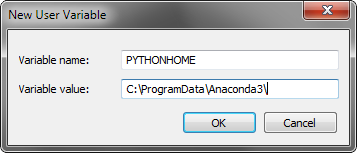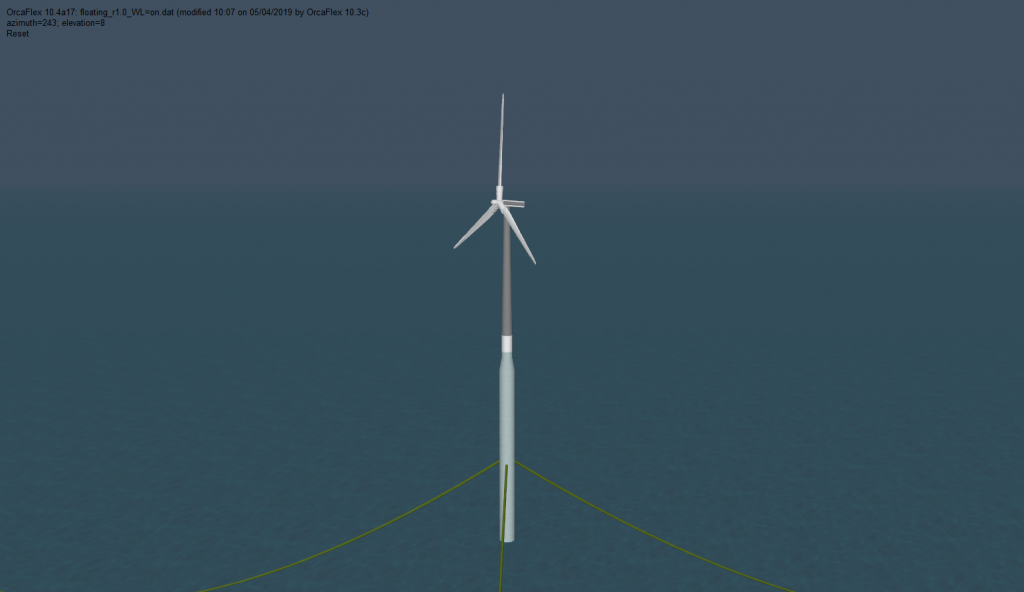Some OrcaFlex users have reported program crashes when trying to execute embedded Python code. These crashes causes OrcaFlex to close without reporting any error message.
If Python scripts are used for OrcaFlex post calculation actions, user defined results or external functions, OrcaFlex must launch a Python interpreter to run the input scripts. We refer to this mode of operation as running embedded Python.
Some clients make use of Anaconda products as their installed Python. However, Anaconda’s packaging of Python 3.7 fails to initialise when OrcaFlex wants to run some embedded Python code, leading to a program crash.
This issue can usually be resolved by creating a new environment variable, PYTHONHOME, and setting its value to your Anaconda Python installation directory.
You can find the environment variables by starting with the System Properties window:

and add PYTHONHOME by selecting New… from the User Environment Variables list:
OrcaFlex version 11.0 provides the Python home directory information to embedded Python automatically. Updating OrcaFlex to version 11.0 will therefore resolve the issue without requiring you to modify environment variables.
We would like to thank all of our users who brought the problem to our attention, and also helped us to find the solution!



